TURN TO
211 TODAY
IF YOU NEED A LITTLE HELP OR JUST SOMEONE TO TALK TO
TURN TO 211.
211 is here to help when you don’t know where to turn or you just need a friendly, listening ear. Through a network of compassionate and highly trained experts, 211 connects you with local or state resources and services to match your unique needs.
Remember, if you are experiencing a life-threatening medical emergency or fear for your safety, call 911.
To connect with the 211 center in your area, simply select your county from the drop down and click GO.
IF YOU ARE A VETERAN, FIRST RESPONDER, HEALTHCARE WORKER, OR TEEN IN NEED OF SUPPORT, TURN TO 211 TODAY.
VETERANS
211 centers around the state are committed to giving Florida veterans the emotional support they need.
Florida has the third largest veteran population in the nation, totaling 1,755,680. VA- funded services and local resources are available to veterans through 211 providers around the state.
If you or a loved one needs assistance, call 1-844-MYFLVET (1-844-693-5838) or click below.
FIRST RESPONDERS
According to the CDC, feeling irritated, helpless, angry, tired and sad are just some symptoms of stress that healthcare workers and first responders may be experiencing due to the demands of the job.
When life’s challenges start to take a toll, let 211 connect you to local resources.
To learn more about first responder assistance, click below or dial 1-866-4FL-HERO (1-866-435-4376).
YOUTH
It’s normal to experience worry or sadness, even if you aren’t sure why you feel the way you do.
Trained and caring counselors are available at 211 centers around the state to connect you with the resources and support you need.
Let your friends and family know how you are feeling and remember that support is just one call or text away.

WHETHER YOU ARE CALLING FOR YOURSELF OR A LOVED ONE, 211 INTRODUCES YOU TO A VARIETY OF RESOURCES AND SERVICES – FROM MENTAL HEALTH TO HOUSING INSTABILITY.
211 provides local referrals to a variety of services, including the following:
Veterans Support
Trauma/Violence Prevention & Intervention
Suicide Prevention
Domestic Abuse Prevention
Employment Assistance
Grief And Loss
Health Services
Housing/Shelter
Legal Services
Mental Health/Counseling Services
Food and Meals
Tax Assistance
Child Care/Early Learning
Disaster Planning & Recovery
Experiencing significant changes in your normal routines may also cause changes in your mental well-being. 211 centers can connect you to local resource specialists who provide referrals, crisis intervention, and behavioral health counseling for you and your family.
TIPS FOR TAKING CARE OF YOURSELF
The Centers for Disease Control and Prevention recommends the following tips for coping with a disaster or traumatic event.
TAKE CARE OF YOUR BODY
Try to eat healthy, well-balanced meals, exercise regularly, and get plenty of sleep. Avoid alcohol, tobacco, and other drugs. Learn more about wellness strategies for mental health.
CONNECT WITH OTHERS
Share your concerns and how you are feeling with a friend or family member. Maintain healthy relationships and build a strong support system.
TAKE BREAKS
Make time to unwind and remind yourself that strong feelings will fade. Try taking deep breaths and do activities you usually enjoy.
AVOID INFORMATION OVERLOAD
Watch, listen to, or read the news for updates from officials to stay informed. Don’t overload yourself with too much information and be cautious of rumors or fake news, especially on social media. It can be unsettling to hear about a crisis or see images repeatedly. Try to do enjoyable activities and check for updates in between.
EMERGENCY RESPONDERS
Stress prevention and management are essential for responders to stay well and continue helping in a crisis. Coping techniques such as writing in a journal, exercising, and connecting with your colleagues for support can reduce burnout and secondary traumatic stress.
SEEK HELP WHEN NEEDED
If distress impacts activities of your daily life for several days or weeks, talk to a clergy member, counselor, or doctor, or contact the SAMHSA helpline at 1-800-985-5990.




